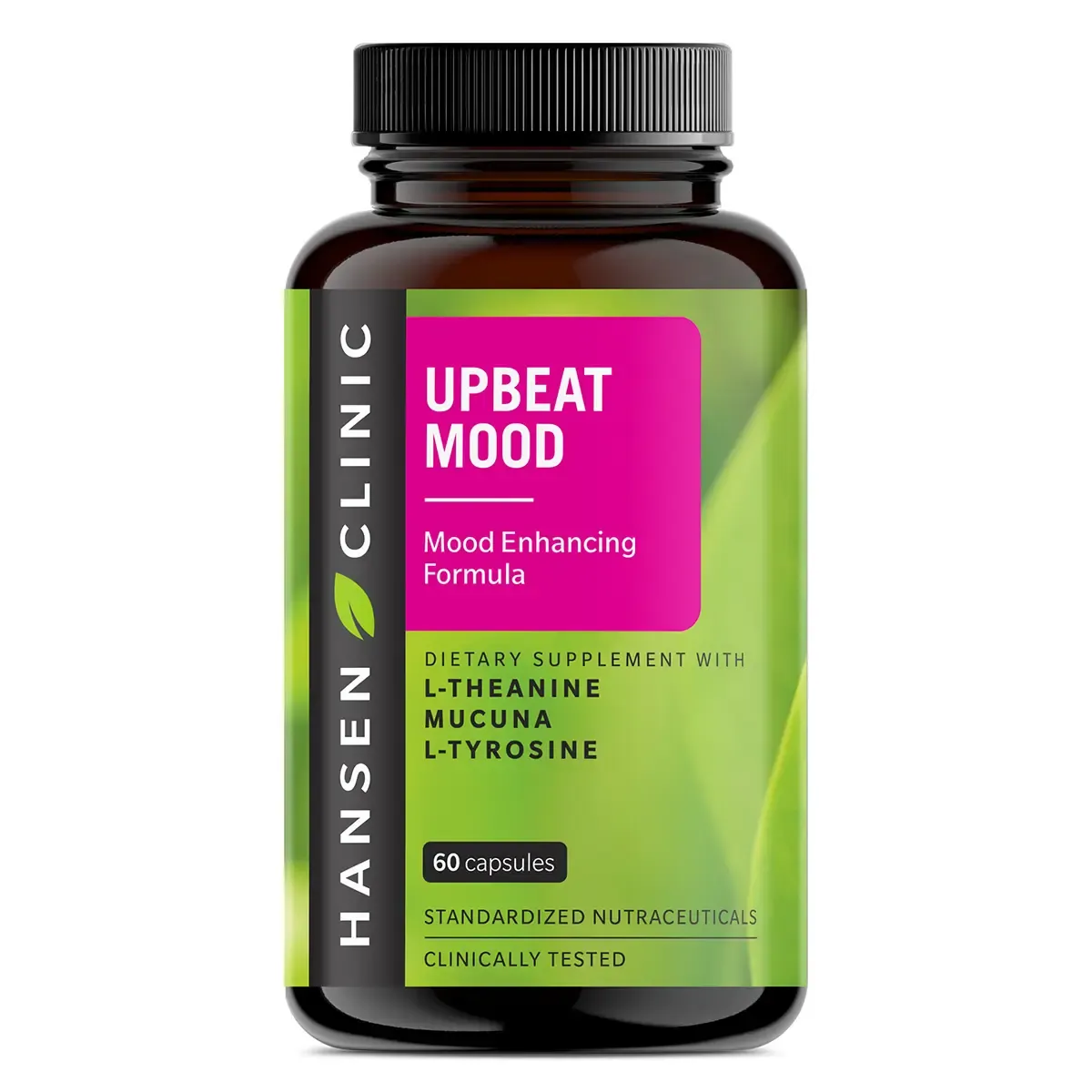Upbeat Mood
Upbeat Mood
L-Theanine
L-Theanine is a water-soluble amino acid commonly found in Green Tea (Camelia sinensis). It has been widely studied for its ability to improve cognitive function and focused attention, which is believed to be affected through its modulation of alpha brain wave activity, which promotes sharp but relaxed mental activity without sedation.
L-Theanine crosses the blood-brain barrier and has been shown to promote the balance of neurotransmitters, including serotonin (the calming, sleep initiating, joyful neurohormone) and dopamine (the neurohormone of motivation, satisfaction and fulfillment).
L-Theanine has been shown to stabilize cognitive function affected by stress hormones. Specifically, L-Theanine decreases excessive cortisone levels made by the adrenal glands in times of stress, which when elevated can inhibit spatial learning and memory formation. L-Theanine has also been found to lower stress-related blood pressure and heart rate.
Researchers have also shown that L-Theanine can improve attention span and reaction time in stressed or anxious individuals. When combined with caffeine (as in my formula known as SynEnergy, which contains a natural source of Caffeine from Guarana leaf extract), L-Theanine appear to moderate the stimulating effects leading to improved visual information processing and accuracy when multitasking. Finally, its ability to selectively bind to glutamate receptors may be the reason it also appears to provide essential neuroprotective effects as well.
Mucuna
Mucuna is a popular Indian medicinal plant, known as Velvet Bean, which has long been used in the ancient traditional Ayurvedic Indian medicine, which has been practiced in India since the Vedic times (1500–1000 BC).
It is known that the main phenolic compound of Mucuna seeds is L-dopa, the precursor to Dopamine, which makes up approximately 5% of the plant [7]. The Velvet bean has been long used for its positive mood enhancing effects and ability to increase focus and concentration. Dopamine is known to enhance the sense of satisfaction and fulfillment and decrease the tendency toward addictions. It has also been used as an aphrodisiac in Ayurveda [1] and to treat nervous disorders and arthritis. [2]
Mucuna has been shown to be neuroprotective [3], and has demonstrated analgesic and anti-inflammatory activity [4]. All parts of the Mucuna plant possess medicinal properties [5].
In vitro and in vivo studies on Mucuna extracts have revealed the presence of substances that exhibit a wide variety of significant health effects, including sugar balancing, nerve tissue protection and anti-oxidant properties, and the presence of L-dopa, which is the precursor of the neurotransmitter dopamine [6].
Mucuna is widely studied because L-dopa is a substance used as a first-line treatment for Parkinson's disease. Some studies indicate that L-dopa derived from Mucuna does not cause the troublesome side effects associated with the synthetic L-Dopa drugs used in treating Parkinson's disease.
L-Tyrosine is an essential amino acid that is converted by the body into Epinephrine and Norepinephrine, the chemical messengers that stimulate positive motivation, as well as emotional and physical activity, and fat metabolism. Epinephrine is physical adrenaline and stimulates muscle cells into activity, as well as fat cells throughout the body to burn fat. Vitamins B6, B12, and Folic Acid are required as essential cofactors necessary for the conversion of L-Tyrosine into Epinephrine and the stimulation of the fat burning receptors.
References:
[1] Amin, 1996; [2] Jeyaweera, 1981; [3] Misra and Wagner, 2007; [4] Hishika et al., 1981; [5] Sathiyanarayanan and Arulmozhi, 2007; [6] Misra and Wagner, 2007; [7] Vadivel and Pugalenthi, 2008;

